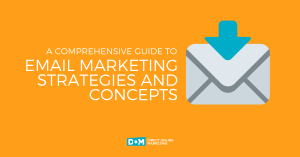With more than 4.9 billion active social media users worldwide, platforms like LinkedIn, Facebook, and Instagram have evolved into vital research tools for clients seeking legal services. For law firms, social media is more than a digital billboard—it’s a way to humanize your practice, demonstrate expertise, and build trust.
Key benefits include:
- Increased Visibility: By maintaining an active presence, you position your firm where clients spend their time.
- Authority Building: Sharing educational and insightful content showcases your expertise.
- Client Engagement: Social media allows direct, informal interaction, making your firm approachable.
In a field where credibility is paramount, a well-crafted social media presence helps your firm stand out.
Effective Social Media Strategies for Law Firms
1. Selecting the Right Platforms
Not every platform is suitable for legal professionals.
- LinkedIn: Ideal for B2B networking, showcasing thought leadership, and connecting with other legal professionals.
- Facebook: Useful for reaching a broad audience, including individuals seeking personal legal services.
- Instagram: Effective for sharing visually engaging content, such as infographics or behind-the-scenes glimpses.
- Twitter: Best for quick updates, industry news, and engaging in legal or local conversations.
Tailor your approach to each platform to maximize engagement.
2. Content Creation: What Works
Crafting content that resonates with your audience is crucial.
- Educational Posts: Share bite-sized legal tips, “know your rights” guides, or updates on new laws. These establish your firm as a reliable source of information.
- Client Testimonials and Success Stories: With proper permissions, share real-life examples of how your firm has helped clients.
- Video Content: FAQs, live Q&A sessions, or quick explainer videos are highly engaging formats that simplify complex legal concepts.
- Visual Appeal: Use branded graphics, flowcharts, and infographics to break down legal processes.
Regular, consistent posting ensures your audience stays engaged and informed.
3. Consistent Engagement
Social media isn’t a one-way street; it’s about building connections. Responding promptly to comments and messages demonstrates accessibility and professionalism. Participate in conversations relevant to your area of expertise, and consider using polls or interactive stories to boost engagement.
4. Paid Advertising and Targeting
Social media ads offer unmatched targeting capabilities. From geographic locations to specific demographics, ads allow you to reach clients who need your services most. However, ensure your advertising adheres to all legal and platform guidelines.
Navigating Platform Restrictions and Ethical Considerations
1. Advertising and Ethical Rules
Legal professionals must comply with advertising rules established by the American Bar Association (ABA) and state bar associations.
- Avoid making guarantees about case outcomes or using misleading language.
- Clearly indicate that your posts or ads are promotional in nature where required.
2. Privacy and Confidentiality Concerns
Client confidentiality is the cornerstone of legal practice, and social media demands extra caution.
- Avoid discussing specific case details or sharing identifiable information without explicit consent.
- Regularly review your team’s social media policies to ensure compliance with privacy laws.
3. Platform-Specific Restrictions
Each social media platform has its own set of rules for advertisers, particularly for regulated industries. For example, Facebook may limit certain types of ad targeting, while LinkedIn often favors educational over promotional content. Understand these nuances to avoid penalties or reduced visibility.
Common Pitfalls to Avoid
While the rewards of social media are great, there are common mistakes law firms should steer clear of:
- Over-Promotional Content: Constantly advertising services can alienate your audience. Balance promotion with valuable, relatable content.
- Failing to Tailor Content: What works on Instagram may not resonate on LinkedIn. Customizing your approach for each platform is key.
- Ignoring Analytics: Regularly review performance metrics to refine your strategy. Analyze which posts generate engagement and adjust accordingly.
The Future of Social Media for Law Firms
The digital landscape is always evolving, and law firms need to stay ahead of emerging trends:
- AI-Driven Content: Tools like chatbots and automated analytics can streamline content creation and audience engagement.
- Short-Form Videos: Platforms like TikTok and Instagram Reels are gaining traction even in professional spaces. Use these for quick tips or answering FAQs.
- Interactive Content: Polls, quizzes, and live sessions foster real-time engagement and help build rapport with your audience.
Adapting to these trends while maintaining professionalism ensures your firm remains competitive in a crowded digital space.
Conclusion
Social media presents an unparalleled opportunity for law firms to connect with their audience, showcase expertise, and grow their practice. By selecting the right platforms, creating meaningful content, and adhering to ethical standards, your firm can stand out while avoiding common pitfalls.
Navigating this space requires a strategic approach, especially with the added layer of legal advertising regulations. Contact Estrella Digital Media today for expert guidance in crafting a custom social media strategy tailored to your firm’s goals and ethical obligations. Together, we’ll ensure your social media presence works as hard as you do.








